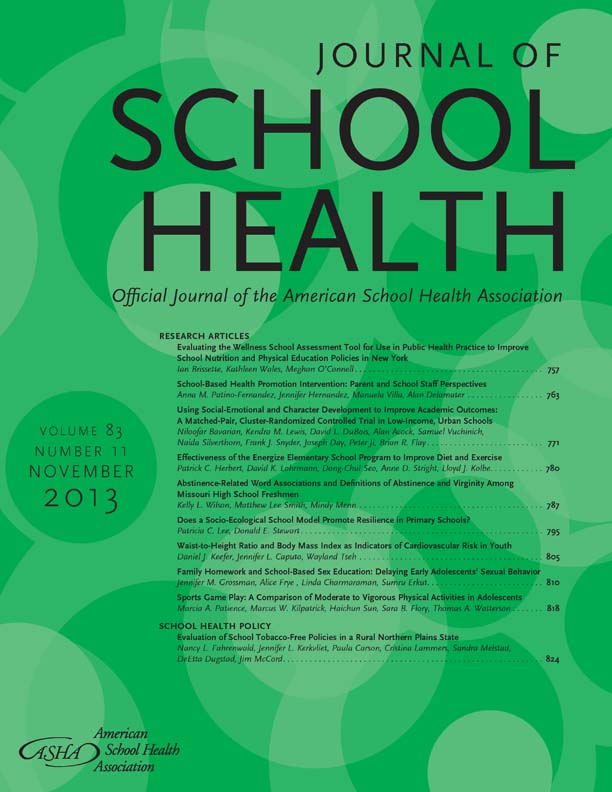Effectiveness of the Energize Elementary School Program to Improve Diet and Exercise
ABSTRACT
BACKGROUND
The rate of childhood obesity has more than tripled during the past 30 years. Research shows that prevention at an early age is more effective than treatment later in life. Energize is a multicomponent intervention incorporated into the school day that combines nutrition education and physical activity aimed at maintaining healthy weight among elementary school youth. This study evaluated the effectiveness of the Energize program for changing dietary and physical activity habits compared to a control group of children not participating in the program.
METHODS
A total of 104, 3rd and 4th graders in 3 southern Indiana elementary schools took part in the study. A quasi-experimental design was used to assess dietary and exercise habits of students in Energize and control groups through 12-week diet/activity logs and post-test questionnaires after controlling for the pre-test results.
RESULTS
Energize reduced consumption of French fries and potato chips, but did not increase physical activity.
CONCLUSIONS
This study provides future researchers with a foundation for preparing longer studies of Energize or to compare multiple years of a standardized Energize curriculum.




